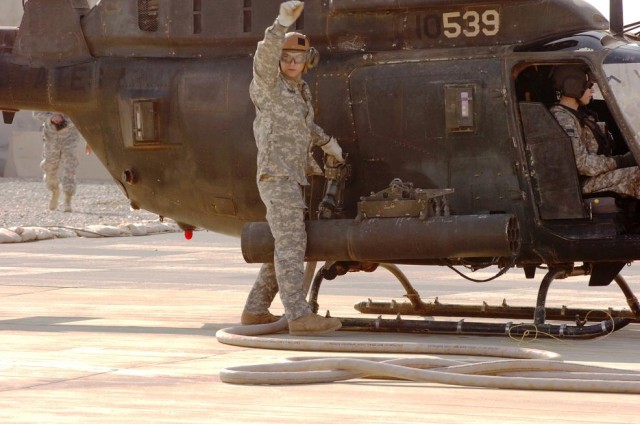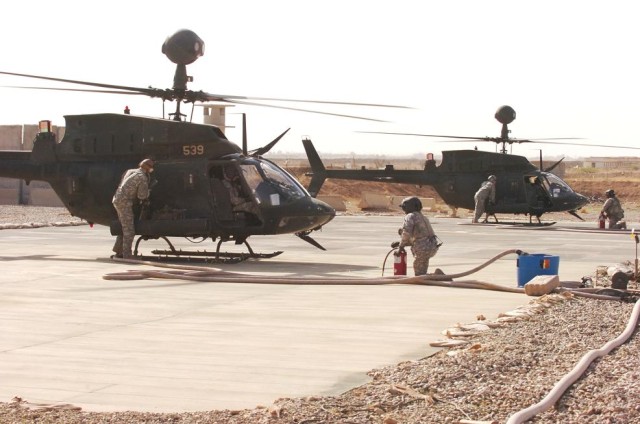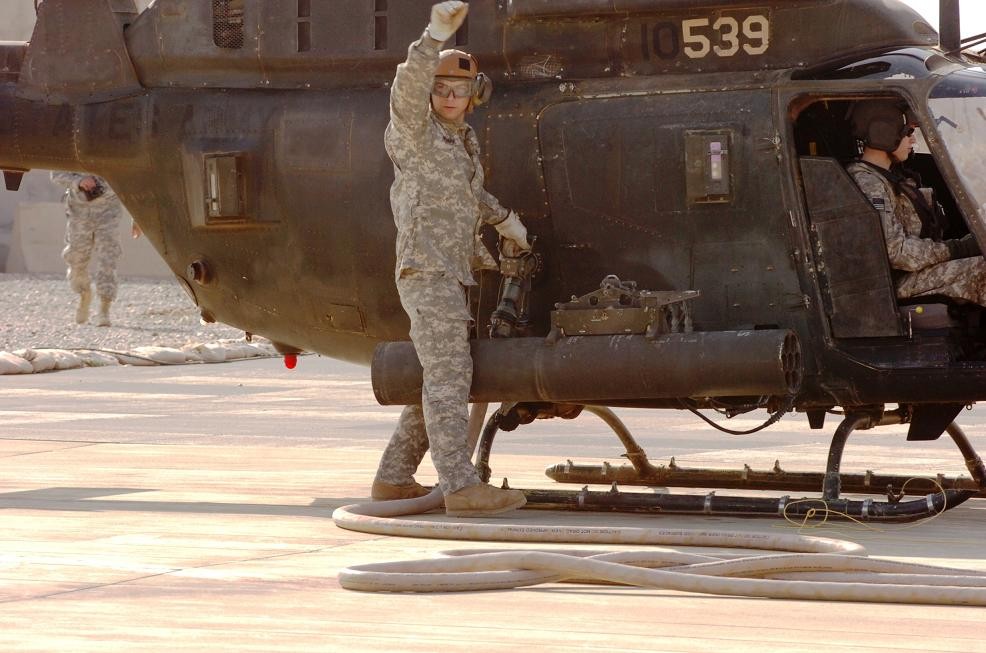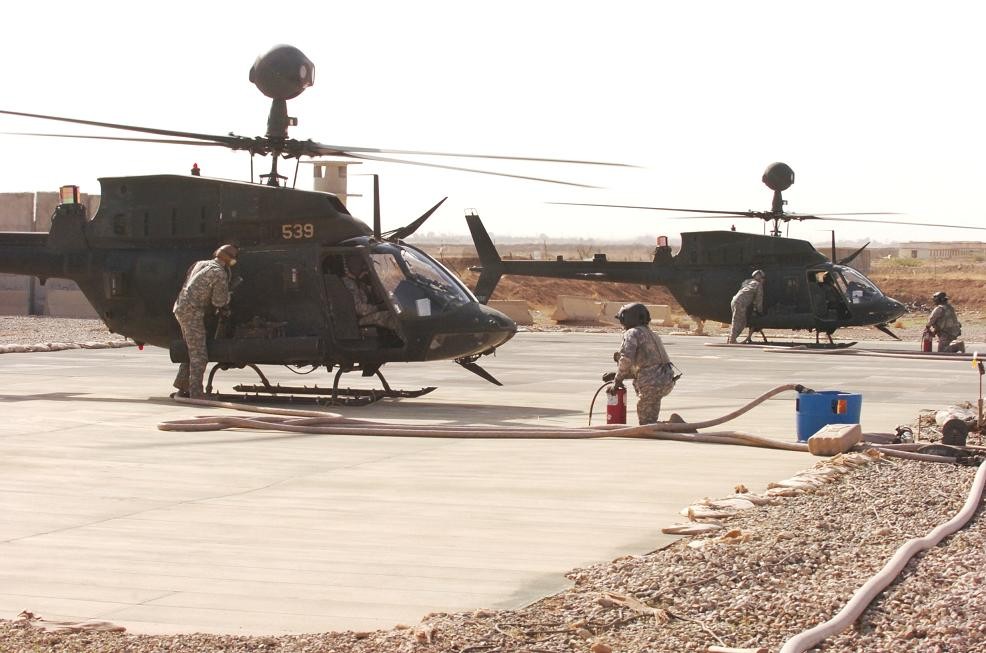CONTINGENCY OPERATING BASE SPEICHER, Iraq - Nestled in a remote location, by design, is a special aviation operation in northwest Iraq.
Soldiers of the Tennessee Army National Guard's 1-230th Air Cavalry Squadron maintain and operate a Forward Arming and Refueling Point (FARP), 24 hours-a-day, seven days-a-week.
According to 2nd Lt. Jason Shaffer, platoon leader and FARP officer-in-charge, Troop G, 1-230th ACS, Soldiers who work on the FARP are responsible for refueling and rearming various types of helicopters at multiple "points" or helipads.
Second Lieutenant Shaffer, husband and father of two, is a native of Nashville, Tenn., and has served in the Tennessee ANG for two years, after six years of active-duty service. He's responsible for the overall functioning of three FARPs. He ensures that the correct quality, grade, type and amount of fuel is delivered to each FARP, in addition to spot checking the completion of daily service and maintenance tasks.
Second Lieutenant Shaffer explained why he has a special confidence in his Soldiers handpicked to work on the FARP.
"The Soldiers that we've chosen to work out here must be exceptionally disciplined," said Second Lieutenant Shaffer. "Quite unlike operations at the more established FOB FARPs, the operations ... run akin to those of a civilian fire station.
"When radios come on out here, wherever the Soldiers are - and I do mean 'wherever' -- they immediately drop anything they're doing, put on their protective equipment, run to the fuel trucks and [service the aircraft]. At other locations, Soldiers are on shift. Here Soldiers work when the aircraft are flying which is all the time, any time."
Staff Sergeant Derrall Tilson is Second Lieutenant Shaffer's fuel and ammunition platoon section sergeant with 1-230th ACS. The 46 year-old native of Knoxville, Tenn., has deployed multiple times with the Tennessee ANG, and also as an active-duty infantryman. He's been in and around FARPs since he transferred to the Guard in 1991.
"My biggest concern with operations on a FARP is always safety," said Staff Sergeant Tilson. "In this job, we're talking about aircraft that have active weapons platforms with rotors turning and Soldiers pumping fuel into helicopters, often at night. Our guys out here are special."
It was at Fort Sill, Okla., when the unit learned that only about 20 percent of the Soldiers were already school-qualified to do the aviation job, Second Lieutenant Shaffer explained.
"We had cooks and water guys and [personnel with] various other job skills. We had to get everyone trained and properly qualified. And that has been my greatest joy; teaching and training Soldiers who know very little about this job to where they are all proficient," he added.
The squadron's executive officer said the squadron operates three FARPs throughout Task Force Marne's area of operation.
"The Soldiers ... are truly remarkable," explained Maj. Beason Layne, Executive Officer, 1-230th ACS. "They have all performed exceedingly well, and have now pumped close to 1.7 million gallons of fuel without incident."
One of those young Soldiers is Spc. David Romano, a food service specialist who was cross-trained into FARP operations. For the young Jackson, Tenn., native, switching from the kitchen to the FARP wasn't a hard choice.
"I like to cook, but I'm from Tennessee; I really like being outside," said Romano. "Getting a chance to meet local Iraqis every once in a while and being out here in nature, getting to look at the hills every day, that's the reason being deployed is okay for me."
The 1-230th ACS deployed with more than 600 soldiers from units in Smyrna, Alcoa and Jackson, Tenn., back in July, 2009. The Squadron is task organized with a Headquarters, Headquarters Troop. Troops A, B and C are equipped with the unit's OH-58D Kiowa Warrior helicopters whose primary missions are reconnaissance and security operations. Troop D is equipped with Black Hawk helicopters used to transport troops and supplies.
Troops E and F handle the battalion's maintenance, component and specialty repair work, respectively. Finally, Troop G provides ground transportation, downed aircraft recovery capability and fuel and ammunition supply in addition to other forward support functions.




Social Sharing